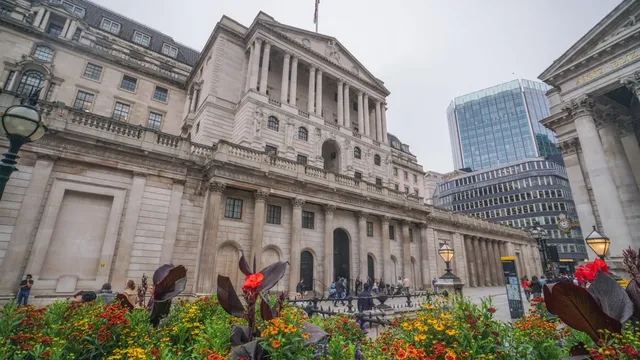
Hedge funds risk collapse as market volatility surges due to Trump's trade policies
2025-04-09 19:05- Hedge funds face significant margin calls due to increasing market volatility.
- The Bank of England warns that heightened uncertainty may lead to adverse market events.
- Consequently, risks associated with hedge fund leverage could destabilize the financial system.
Express your sentiment!
Insights
In recent months, hedge funds have faced serious challenges due to increasing volatility in financial markets, primarily stemming from President Donald Trump’s imposition of tariffs. This situation has led to significant margin calls from hedge funds' prime brokers, as many funds have leveraged extensive borrowings to bet on the prices of US government bonds. An alarming rise in uncertainty and the potential for adverse events has been noted by the Bank of England's financial policy committee. They caution that if not managed properly, the leverage used by these hedge funds could amplify market shocks and lead to increased illiquidity. As hedge funds play a more influential role in the trading of government debt, their increased use of leverage has created a concentrated borrowing risk among a few key funds. The situation is made worse by a substantial sell-off in US Treasury bonds, where hedge funds have billions of dollars committed to the basis trade strategy, which seeks profit from small price differences in the bond market. The dwindling value of these treasury bonds raises concerns about the potential broader impact on the financial system and the ability of hedge funds to sustain their positions amidst crumbling asset values. Fears that hedge funds’ substantial bets on US government bonds might result in significant financial losses have grown considerably. The rapid downward adjustment in bond prices threatens the stability of these funds and could generate a ripple effect throughout various sectors of the financial system. Market stakeholders remain apprehensive as the fallout from Trump's trade war continues to unfold with far-reaching implications. In summary, the intersection of policy decisions by the Trump administration and the aggressive strategies employed by hedge funds are creating a precarious environment for financial markets. The heightened risk of illiquidity and rising margin calls signal potential trouble ahead for the sector, fuelling concerns of more pronounced corrections in stock and bond markets if conditions persist.
Contexts
The impact of President Trump's tariffs on the UK economy is a multifaceted issue that has unfolded in the context of global trade dynamics and domestic economic policies. President Trump's trade policies, including the implementation of tariffs on various imported goods, were primarily aimed at reducing the trade deficit and protecting American industries. However, these measures had ripple effects on the UK economy, as the UK is a significant trading partner with the United States. Tariffs on steel and aluminum, for example, led to increased prices for UK manufacturers who rely on these materials, thereby affecting their competitiveness not only in the U.S. market but also globally. Moreover, the tariffs have influenced currency exchange rates and foreign investment patterns. Following the announcement of tariffs, the British Pound faced fluctuations against the U.S. Dollar, which directly impacted UK exporters. A weaker pound can make UK goods cheaper for foreign buyers, potentially boosting exports. However, the uncertainty created by tariff policies also led to caution among investors and businesses, who found it challenging to forecast the long-term implications of these trade barriers. Consequently, the immediate reaction was an increase in operational costs for many businesses, as suppliers adjusted to the new tariff landscape. As the UK navigated its economic landscape post-Brexit, the tariffs implemented by the Trump administration complicated trade negotiations between the two nations. With the UK seeking to establish new trade agreements independently, the imposition of tariffs became a contentious issue that could threaten potential trade deals. Uncertainty surrounding U.S. tariffs created a precarious environment for UK companies looking to expand into the American market, as they faced the prospect of heightened costs alongside tariffs, which could negate the benefits of any preferential trade agreements. In the long term, the sustainability of UK industries that rely heavily on exports to the U.S. and access to supply chains was called into question. In conclusion, the impact of President Trump's tariffs on the UK economy highlighted the interconnectedness of global trade relationships and the importance of stable trade policies. The immediate repercussions included increased costs for manufacturers and exporters while creating uncertainty in investment and trade negotiations. As the UK sought to redefine its place on the global stage post-Brexit, the tariffs imposed by the U.S. served as both a challenge and a pivotal factor in shaping the UK's trade strategy and economic resilience. The long-term implications of these tariffs continue to unfold, underscoring the necessity for comprehensive analyses to guide future policy decisions.